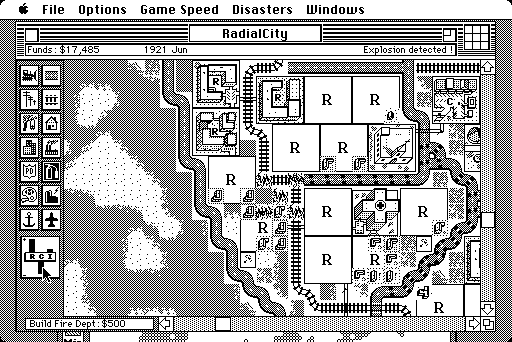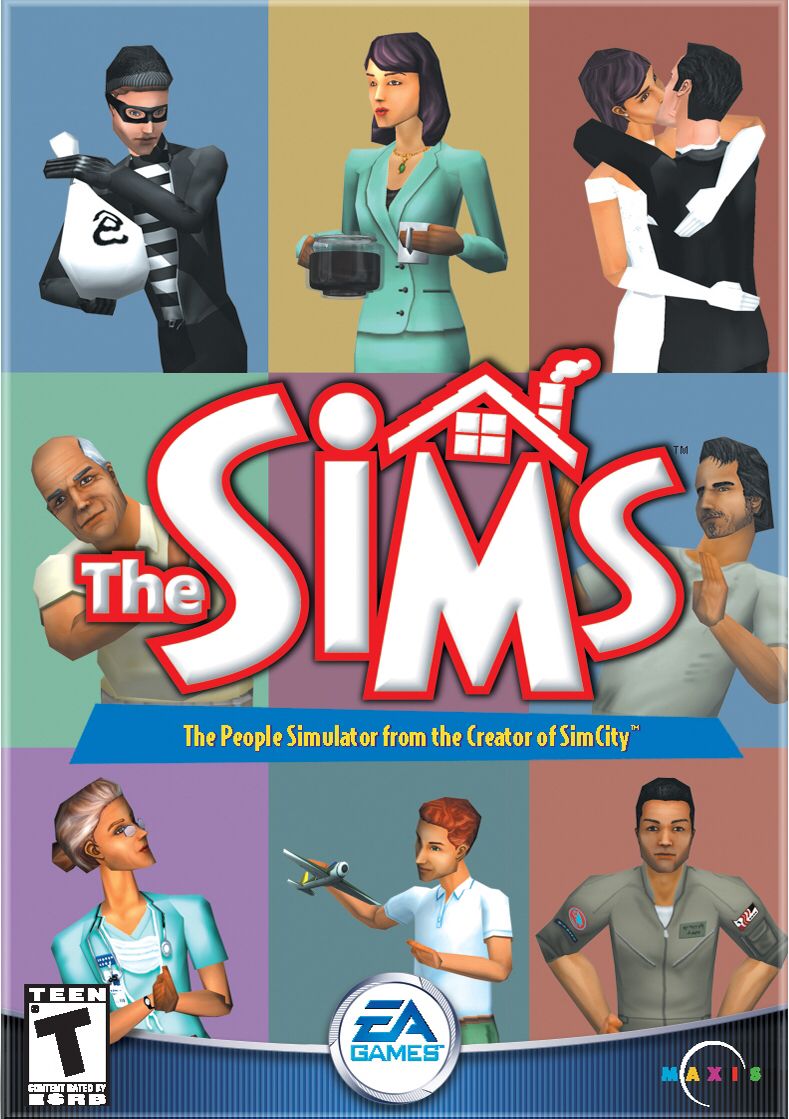Will Wright is one of the most iconic creators in gaming. He’s responsible for notable games such as SimCity, The Sims, and Spore. He’s also working on a new mobile game, Proxi. And now he’s going to be teaching others his design process.
Wright is creating videos for MasterClass, a site that hosts online lessons from experts in their field. For example, you can learn comedy from Steve Martin, cooking from Gordon Ramsey, and tennis from Serena Williams. You get access to these videos with a $180 a year subscription.
That’s an impressive list of celebrities, and Wright rightfully (heh) belongs in their company. He is hosting a total of 20 lessons, each about 10 to 20 minutes long, combining for over 4 hours of teachings.
We had a chance to talk with Wright about the creation of his classes, what they will cover, and his history in game design.
June 5th: The AI Audit in NYC
Join us next week in NYC to engage with top executive leaders, delving into strategies for auditing AI models to ensure fairness, optimal performance, and ethical compliance across diverse organizations. Secure your attendance for this exclusive invite-only event.
GamesBeat: Why get involved with MasterClass?
Will Wright: Well, the opportunity came up. I’ve given a lot of talks over the years about games and game design, but never really comprehensively, beginning to end, all about game design. It helps me corral my thinking, figuring out — what is the overview? What are the subjects I should cover? What does game design mean to me? What does it encompass? I’ve probably learned more about it than the students will.
GamesBeat: Are you focusing on any specific kind of game making? Or is the course more broad than that?
Wright: It’s very broad in terms of — I’m trying to get into the deep fundamentals of it. It’s not so much how to program in Java, that kind of thing. In fact, I’ve always found the technology side to be fairly straightforward. Not quite boring, but straightforward. The interesting part to me has always been, how do you hack the player’s psychology? That’s the part of the system that’s interesting to me, and that’s what a lot of the class focuses on.
GamesBeat: What was the filming experience like for this?
Wright: Well, it was very professional. You had at least 50 people running around doing lighting, makeup, this and that and the other. It was very professional. But luckily I actually had a friend of mine, Amy Jo Kim — she was helping focus the discussion with questions and things. She’s a game designer as well. She knows me.
I think once we actually started filming, the lights went on and those 50 people just disappeared. It was really just Amy and I having these deep discussions about game design.

Above: The original black-and-white SimCity for Mac.
GamesBeat: Looking back at your own career, what is the toughest challenge you faced as a designer?
Wright: Well, the challenge is always, how do you deconstruct the player’s imagination and figure out how to use that to your advantage? Other formats — Hitchcock was a master of that. He’d turn your imagination against you. The scariest stuff in those movies was the stuff you didn’t see, the stuff you imagined.
For a game designer, it’s how do you capture somebody’s imagination so they want to come into your world and do things and feel accomplishment? They feel like it’s interesting enough that it’s a place they can be creative. I think that I continually learn about how people think, what motivates them, what interests them. That’s probably always the toughest part.
GamesBeat: Making games, you can think about it as systems, code, and mechanics, but you seem to approach it more thinking about the player first, their expectations, and working around that. Is that fair to say?
Wright: Yeah, although there actually is part of the class where I go pretty deep into systems design, why systems — different metaphors. Network systems, system dynamics, and how you pick these mechanical things and try to create emergence from them, so that cool, interesting, surprising things will come out of these.
GamesBeat: Who do you imagine the class will be for? Is it for budding game designers, people who are maybe in school right now? Or high school students who are thinking about this as a field? What kind of audience do you have in mind?
Wright: I think it’s pretty broad, but I think it’s more focused toward people who are seriously into this. These might be people who learn a bit of coding. They’ve made a few little games or whatever. They’re starting to understand the mechanical aspects of it. Now there’s this wide open landscape in front of them. What do I do? How do I think about this? For those people who are ready for that step, this is going to give them a way to think about the whole field.
And even people outside of game design can learn a lot about user psychology for product design, interactive design of any kind. A lot of what I cover is very applicable to that as well.
GamesBeat: Is there a single project of yours that stands out as being the most difficult to work on in your career?
Wright: Oh, gosh. I’d say maybe The Sims, because I spent seven years trying to sell that, sell the idea to people. Nobody really got it, so I took a guerrilla team and just programmed it. That was challenging not so much on the programming and development side. It was more, how do I pitch this so people will understand it? Spore was an incredible technical challenge. There were so many technical things to overcome with Spore.

Above: The Sims.
GamesBeat: Most of your career was in PC gaming, and right now you’re working on mobile. Has that changed your approach to design at all?
Wright: Yeah, I think it’s changed the development process quite a bit. You tend to deal with much lighter, smaller code bases that you can iterate on and update. You can actually learn a lot more in development from the players, because you can put something out there, let people use it, and continually have it evolve. It changes the development process a lot. I think the fundamentals of how you engage a player’s imagination are pretty much the same, though.
GamesBeat: From when you started working on SimCity, compared to making games now, what has changed about your process?
Wright: My first couple of games I did all by myself. I did art, sound, music, graphics, everything. With Spore we had 135 people working on it. It’s quite a bit different when you’re managing a huge team like that. I think that — back then, also, I felt — in the early days, the primary limitation was technology. I wish I had better graphics. I wish I had more memory. I wish I had a faster processor.
That all started evaporating about 15 years ago. Now I don’t feel like there are any real meaningful limitations put on me by technology. Pretty much anything I can imagine, we can build.
GamesBeat: Your games have always been much more systems-based. They’re not necessarily narrative-focus games. Are you giving any attention to the narrative elements of making a game?
Wright: Actually, there’s a whole section about that. The gist of it is that I think games and story are two sides of the same coin. Somebody who really wants to be a storyteller, there might be other formats that are better for you. The best stories I’ve ever experienced or heard of in games were the players’ stories, the things that uniquely happened to each person, what they did.
Those are the ones that people really share and are proud of and want to talk about. I’ve really focused on that. How do you create systems where cool player stories emerge from that?

Above: Will Wright teaching game design.
GamesBeat: How did you learn to make games? Was it just an experience thing? Was there somebody who taught you?
Wright: Back then there was nobody teaching game design, so it was pretty much — fail. [laughs] Learn by failure. I learned a lot from my early games. Some of them I consider kind of noble failures, like SimEarth. I learned some very valuable lessons that helped some of my later games be more successful.
But also, in the early days, you’d go to the Game Developers Conference and meet other developers. The first GDC I went to, it was attended by I think maybe 80 people? The next one was maybe 300. Everybody knew everybody else. When you’re dealing with that small of a community of people doing something new and creative, you share a lot of ideas back and forth. I learned a lot from other game designers.
GamesBeat: You mentioned learning from failure. Is trial and error still a big part of game design for you today?
Wright: Unfortunately, yes. [Laughs] There’s a section about prototyping where we cover that. How you basically fail fast and learn from those failures very quickly, because — the whole time you’re designing something, you’re going down this huge tree of possibilities.
You’re going to end up on one little branch of that tree, but along the way you’ll hit a lot of forks. You might take the wrong fork and have to back up. To be effective, especially if you’re doing something new and unique — if you’re doing a better version of a first-person shooter you’re not going to experience that nearly as much, but you’re not going to create something quite as creative either.

Above: Spore lets you make your own creatures.
GamesBeat: Let’s say you’re a budding game designer. You make a game. How do you know your game is good before releasing it?
Wright: Well, there are a couple of rules of thumb I’ve found. Even for games that I play, ones that I didn’t make. One of them is that games that are really good, even in an early stage, I find myself playing them in my head, even when I’m away from the machine. I’m playing Civilization or something like that on my computer, but when I’m not playing it, I’m still sitting there thinking about — when I get back to the game I’m going to do this next.
In my mind I’m imagining what I’m going to do next in the game. And if it gets to a point where it’s in my head and I’m playing it in my spare time away from the computer, that’s a really good indicator. Or when somebody’s watching you play a game and they want to try it. They see what you’re doing and they instantly want to engage and interact with it. There are a lot of indicators like that.
GamesBeat: I imagine that when you start a project it’s probably easy to be excited about it. You have a lot of passion going in. As a game project goes on for a long time, is it difficult to hold on to that passion in the later stages of development?
Wright: Yeah, it is. Especially — anything dealing with software, when you think that you’re 80 or 90 percent done, you’re really halfway done. It’s always the case. You’re looking at this piece of code or this game or whatever. It’s almost done! I’m just about finished! But really you’re halfway done. That’s always been my experience. When you get to the point where you thought you were done, you learn a lot, and you have to go back and test things and tune it.
If you really want it to be good you have to have a lot of perseverance at the end, especially with a large team, which has a lot of other links involved. It’s hard. It’s not something for the faint of heart. [laughs] I think that’s true of almost any design field.

Above: Take notes.
GamesBeat: Does your class go into how to pitch or sell a game at all, or is it more focused on design?
Wright: Well, I go into, basically, how you sell it during the development process. In other words, first you have to sell it to yourself. Do I really want to do this? Do I like it that much? Do I want to invest my life into it? Then you have to sell it to the team that you’re building. You have to inspire them and get them on the same page and have them as motivated as you are. And then of course you have to sell it to whoever is going to fund it, the executives from your company or whatever.
A lot of the stages at which you’re pitching this thing — nowadays you don’t even put a game in a box. You download it off the web. But it used to be that it came in a box. As soon as the player sees the box they’re playing the game in their heads, imagining what the game is like. It’s not just how you put ads out to sell it. It’s also how you present the thing in a such a way that somebody sees it and they can instantly start imagining playing it and it’s fun. That imaginary game, what they think it is, is fun to play, and they want to try it.
GamesBeat: You mentioned leading a team. Are leadership skills important if you want to make a game these days, assuming you’re not going to make it entirely by yourself?
Wright: Yes, and there are different dimensions to that. The most successful teams I’ve worked in, usually there was a very strong producer. In my case for a number of years it was Lucy Bradshaw. She was very good at the logistical side of managing people, hiring, day-to-day stuff, what you pretty much call management.
The other side of that is creative vision. A lot of companies would call that a creative director. That’s a different sort of leadership position. But it has its own challenges. At that point you’re leading a creative team, but you’re also interacting with people from what we could call the management side.

Above: Will Wright at GamesBeat 2013.
GamesBeat: How much time did it take for you to plan your MasterClass?
Wright: Several months ago we started talking about it. I was giving them a lot of the material that I give in my talks and a rough idea — they were coming back to me with outline ideas and we iterated back and forth on how we could structure the whole thing into sections and subsections. It was several weeks of figuring out the format of how to present the material and the outline of the material.
But once you get me on camera and pick a subject, I’ll sit there and talk forever. [laughs] That part was easy. It was really more about the order and the structure of how we would present it.
GamesBeat: During the class, are you going back to your own games a lot to show them as examples and references?
Wright: Oh, yeah, definitely. And also just talking about lessons I’ve learned from the games I’ve made. Things that worked and didn’t work, what made me choose to do it this way instead of that way. I use a lot of my own experience, just as an example. Of course, that’s not the only way to do it. It’s just my style.
GamesBeat: Do you think these videos would be interesting to someone who is more just a fan of you and your games, who’s interested in your process? Even if they don’t intend to get into game creation?
Wright: Oh, yeah. Quite a bit of it, really, is psychology. Like a quarter of the whole thing is talking about psychology. I think a lot of people would find that interesting, even gamers who aren’t quite realizing what’s going on in their head when they play a game. Again, there are a lot of other creative fields that could benefit from this.
One of the points I tried to make is that — I think game design is maybe one of the most challenging design fields, because it incorporates almost any other field of design you could imagine. Things like storytelling, architecture, set design, art, sound, music. All these things are part of game design. I can’t think of any other design field that’s quite as broad as game design.

